 How many of you have suffered from constipation in your lifetime. Most I suspect. Some people though, have this dibilitating condition all the time. But you don’t have to suffer it any more ‘magnesium and constipation’ gives you the permanent and natural answer!
How many of you have suffered from constipation in your lifetime. Most I suspect. Some people though, have this dibilitating condition all the time. But you don’t have to suffer it any more ‘magnesium and constipation’ gives you the permanent and natural answer!
It’s not funny!
I know some of us (who don’t suffer it) think it’s funny, the same as getting a broken leg from a skiing trip or being suddenly inflicted with back pain. Portrayed in a comedy sitcom, it is expected to get the audience laughing for some reason. Constipation though, is no laughing matter and it can be a precursor to serious problems. It is also a clue. Your body is telling you something. So don’t just sit there!
 What about babies and children?
What about babies and children?
Constipation in babies and children is very common. With babies on formula, the problem could be not enough Magnesium (Mg) to balance the always present high Calcium (Ca) content. I checked out the mineral content of a number of popular infant formulae including SMA, Abbott’s, Enfamil, PBM and Nestle and found an average ratio of 11 : 1. That’s 11 times more Ca than Mg. This is a recipe for Mg deficiency and could be the start of health problems for the child’s future, including ADHD, ADD, OCD, epilepsy, asthma, autism as well as digestive disorders.
As Mg depletion in these modern times, is partly due to depleted minerals in our soils and food, it may be a better solution against Mg deficiency to reduce the RDA (Recommended Daily Allowance) of Ca. Different countries have different Ca RDAs varying from 500mg to 1500mg per day (for adults). This vast difference in itself is worrying and indicates that the correct level is unknown or unidentified as yet. But evidence shows from research, that too much Ca to Mg is dangerous and can compromise Mg’s ability to control Ca with bone health, cell health and enzymatic control so this in itself should give us a clue!¹ Also, we know that our ancestor’s diet ratio of Ca and Mg was at least 1 : 1.
 Laxatives?
Laxatives?
The supermarket shelves are stacked high with a variety of laxatives and this is a good indication that constipation is something suffered by much of the population. If you are one of them, try to give up on the laxatives, they can easily become a habit and just keep your digestion lazy. You need to wake your digestive system up and keep it well balanced.
Antacids?
This is another problem with so many of the population relying on antacids to relieve their heartburn and indigestion. You will find that if you are replete in Mg, your indigestion problems will start to disappear. That is, as long as you are not on junk food and sodas as a staple diet! If you’re on a drug like ‘Nexium’ you will actually be blocking acid production. This is not an intelligent way of controlling your digestion. Without stomach acid, you cannot digest your food! If you insist on taking this drug, then don’t take it for more than 2 weeks!
 One particular antacid which seems to be popular is ‘Tums’. This product allows you to consume 3000mg of calcium carbonate every day. Ca carbonate is, in fact, just chalk. This is a dangerous amount of Ca to be consuming, especially with the added Ca from your daily intake of food and drink. Some people seem to eat tums like they’re sweets and you must admit, they actually look like sweets. How many youngsters are consuming these antacids I wonder?
One particular antacid which seems to be popular is ‘Tums’. This product allows you to consume 3000mg of calcium carbonate every day. Ca carbonate is, in fact, just chalk. This is a dangerous amount of Ca to be consuming, especially with the added Ca from your daily intake of food and drink. Some people seem to eat tums like they’re sweets and you must admit, they actually look like sweets. How many youngsters are consuming these antacids I wonder?
The dance of Mg and Ca
Mg and Ca are both minerals that need each other for them both to work efficiently within the body. Ca is constrictive, tensive and contracts muscles (including the heart muscle). Mg is the opposite, it is calming, easing and relaxes muscles. It is Mg though, that is the controlling factor in this twosome.
Mg and muscles
Mg and Ca are intimately involved in the function of all muscles in the body and that includes the smooth muscles of the stomach. These muscles help digest our food with a churning and mixing motion. Unconscious, rhythmic contractions of the small intestine called peristalsis, move the food through the digestive system towards the colon. Where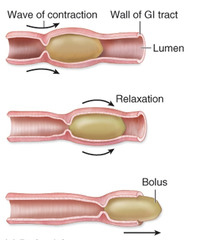 you have contraction behind the food/waste bolus to push it through your system, if you don’t have relaxation in front of the bolus then it can’t move forward. Those with Mg deficiency often also have problems swallowing food, again sluggish peristalsis can be to blame. If the muscles or nerves within the digestive tract are unable to function properly, then digestive problems will occur, not least constipation. Think about it, it’s just common sense. Ca and Mg must be equally available for both vital minerals to work efficiently.
you have contraction behind the food/waste bolus to push it through your system, if you don’t have relaxation in front of the bolus then it can’t move forward. Those with Mg deficiency often also have problems swallowing food, again sluggish peristalsis can be to blame. If the muscles or nerves within the digestive tract are unable to function properly, then digestive problems will occur, not least constipation. Think about it, it’s just common sense. Ca and Mg must be equally available for both vital minerals to work efficiently.
Mg allows Ca into the muscle cells to cause contraction, then ushers Ca out so that the muscle can relax. Muscle cells with too much Ca can cause constriction of the muscle which induces uncontrollable and often painful muscle spasms. It can also cause the heart to go into spasm, something that can happen to athletes when they lose Mg rapidly with intensive workouts and competitive games.
The same goes for nerve cells, they can be so excited by the overload of Ca, that it will cause cell death. This problem will occur all over the body with a Mg deficiency. It is very rare to have a Ca deficiency because of our modern diet but it’s all too common to have a Mg deficiency, again, because of our modern diet and the stress of modern day living. Stress is the biggest depleter of Mg.
Digestion problems
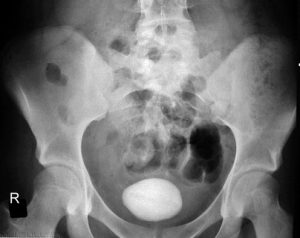
As we’re talking about part of the digestive system, it’s worth noting that a serious depletion of Mg is often caused by low stomach acidity. (Too little acid being the most common cause of indigestion and acid reflux, NOT too much acid). Both Ca and Mg as well as other nutrients, need the strong acidic environment of the stomach to ionise and absorb. When Ca leaves the stomach and enters the small intestine, it enters a more alkaline environment and will precipitate out of solution if Mg is not available to keep it dissolved. This allows Ca deposits to build up in soft tissues. With too little acid, Ca will not be dissolved and Mg will not be absorbed. This also means that the Ca consumed is not being used as it should, to be laid down to bone, with Mg’s control. Also, to be ushered into and out of cells, again under Mg’s control and to be dissolved in the blood, again under Mg’s control. Mg is easily excreted through the bowel and bladder. Ca, on the other hand, is not excreted so readily and an uncontrolled excess is able to linger in the body and slowly build up calcifications.
Digestion with depleted Mg.
You can imagine what the muscles of the digestive system will do if there is not enough Mg. Ca will contract muscles but there would not be the Mg to produce the relaxation cycle. This means muscles will cramp or go into spasm (IBS). There will be an interference with the peristalsis necessary to push waste products through the bowels; result constipation.
 According to the International Foundation for Functional Intestinal Disorders “Gastrointestinal (GI) motility is defined by the movements of the digestive system and the transit of the contents within it. When nerves or muscles in any portion of the digestive tract do not function with their normal strength and coordination, a person develops symptoms related to motility problems.”
According to the International Foundation for Functional Intestinal Disorders “Gastrointestinal (GI) motility is defined by the movements of the digestive system and the transit of the contents within it. When nerves or muscles in any portion of the digestive tract do not function with their normal strength and coordination, a person develops symptoms related to motility problems.”
With Mg deficiency any part of the digestive system can be compromised as follows:
- Aesophagus (acid reflux, dysphagia, achalasia, functional chest pain).
- Stomach (gastroparesis, rapid gastric emptying or dumping syndrome, functional dyspepsia, cyclic vomiting syndrome (CVS)).
- The Small Intestine (intestinal pseudo-obstruction, small bowel bacterial overgrowth, intestinal dysmotility).
- The Large Intestine or Colon (irritable bowel syndrome (IBS), constipation, diarrhoea, Hirschsprung’s Disease).
- Anorectum and Pelvic Floor (Pelvic Floor Dyssynergia, fecal incontinence, Hirschsprung’s Disease).
Looking at all these condition, with the exception of bacterial overgrowth, there is a striking similarity between all of them and that is muscle dysfunction of some sort. So we have 16 conditions here within the digestive system that will all be adversely affected by a Mg deficiency and one of them is constipation!
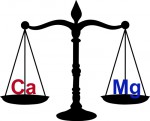 Heal yourself with an essential mineral
Heal yourself with an essential mineral
You will benefit greatly from checking your diet for calcium intake and controlling it. Then make sure your diet includes plenty of Mg rich foods plus take a good quality magnesium supplement. You will be hard pressed to get enough Mg from food alone, not in this day and age. You need to aim for a 1 to 1 ratio of Mg to Ca. You need to replenish your Mg daily and do not take Ca supplements if you eat a normal diet.
IMHO best of the Mg supplements
It is now known that the vast majority of the population have a deficiency in Mg. The two supplements I take and recommend are Mg Chloride (MgCl2) and Mg Citrate powder. I don’t have to use a topical supplementation but it’s here for those who have a sensitivity to laxatives. Don’t go for the cheap Mg Oxide as it is no more than 4% bioavailable.
- Mg Chloride – This comes in solution which has to be diluted with water. It is salty and bitter and most don’t like the taste but it can be disguised with a dash of cordial in your dose. 1 dose is ½ teaspoon (2.5ml) in a glass of water which yields 150mg of elemental Mg. Start slowly with just half a dose twice a day, then work up until you feel the benefit. I take at least 4 doses per day which is 600mg of Mg. I put it in a jug of water and drink it throughout the day. I take more if I know my day will be stressful or difficult. Stress is a big depleter of Mg. This supplement is 100% bioavailable and will not have a laxative effect until you get to higher doses.
- Mg Citrate – The best to buy is a powder form. This is a gentle laxative and you can easily adjust the dose to suit. It’s ideal for administering to children as it is tasteless and can be put into foods like porridge, soups etc.. The cheaper supplements can be a bit gritty, the more expensive ones are usually a much finer powder. Most body building sites will sell it. Body builders usually know all about Mg and its benefits.
- Topical Mg – you can get a topical Mg supplement which is applied to the skin. The molecule is so small that it readily enters the skin and doesn’t go through the digestive system. This is ideal if you don’t want a laxative effect.
 Please remember, Mg is a natural mineral that is vital for all life on this planet.² This is the most important mineral to man and all other living organisms. Mg has existed since the beginning of life on Earth and has evolved with us. It is the spark of life, without it we die. With Mg depletion, we slowly degenerate, become sick, exhibit more and more symptoms, deteriorate and die before our time, more often of cardiovascular type diseases!
Please remember, Mg is a natural mineral that is vital for all life on this planet.² This is the most important mineral to man and all other living organisms. Mg has existed since the beginning of life on Earth and has evolved with us. It is the spark of life, without it we die. With Mg depletion, we slowly degenerate, become sick, exhibit more and more symptoms, deteriorate and die before our time, more often of cardiovascular type diseases!
Ches
- Walker GM, “Biotechnological implications of the interations between magnesium and calcium.” Magnes Res, vol.12, no. 4, pp. 303-309, 1999.
- Aikawa JK, Magnesium: Its Biological Significance, CRC Press, Boca Raton, FL, 1981.
Spread the word!
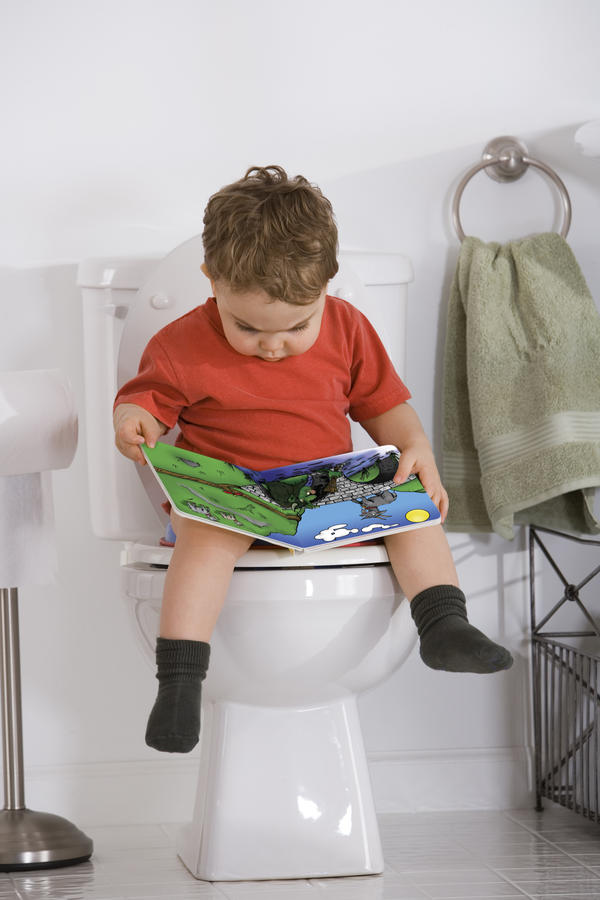
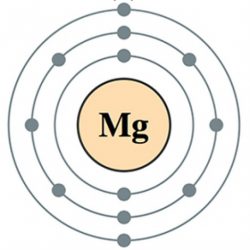
Thank you! Your thoughts have given credence to my experience. As a lifelong sufferer of constipation and migraines, once I began daily supplementation with Mg My bowel movements became daily (rather than weekly) and migraines diminished drastically. My son(on the autism spectrum) eats almost exclusively dairy. He is an extremely picky eater. He also suffers from constipation/migraines. Your explanation of the Ca:Mg ratio makes sense. I will try Mg supplementation with him.
Thank you Dani for your comment. I am really happy that you have tried Mg. It will surely do your son nothing but good and you may notice a change in him after he has taken a good quality Mg supplement for a while. This post may give you some additional information about the dangers of too much Ca. Mg Chloride is the best supplement because it has a stability constant value of zero If your son cannot take the taste, you can lace it will a little elderflower cordial or try Mg Citrate powder which is tasteless and can be put into food and drink. Mg Citrate also has a low SCV and is also easy to dose by slowly increasing the powder until you reach bowel tolerance. Many health and fitness outlets sell Mg Citrate. Come back to me if you have any further questions. Don’t use Mg Oxide. It is the cheapest and the least bio available and is generally put in over the counter supplements. Good luck!
I never knew that magnesium had a part to play in why I was so constipated all the time. I do realize that our soil isn’t what it used to be back in the 40’s and 50’s when food was really food. Now it’s all processed and packaged into something resembling food but without all the nutrition that we so desperately need. Which is why we are nutritionally vitamin and mineral deficient. I also didn’t know that you need Ca and Mg together to make your system work more smoothly. I really liked the way you explained how they work together to make your digestive tract run well, and how too much or too little isn’t a good thing.
Thanks for reading the article and giving us your comments. I sincerely hope that your digestive problems have now improved. Having constipation really does herald a likely magnesium deficiency. It was one of my problems which has now completely disappeared. You’re right about the processed food, this is part of the problem and eating healthily is part of the answer! Yes, Mg controls Ca in and out of the cells. Without Mg, Ca can cause serious health problems, not least cardiovascular diseases, that’s why a CCS (coronary calcium scan) is often performed, to test how much calcification is in the heart and arteries. It is difficult to overdose on Mg but so easy to consume excess Ca in this day and age. Ches
Hi Ches
I always knew magnesium was very important – I know someone who suffers much pain from cramps due to magnesium deficiency. But your article has taken me a step further in increasing my knowledge. Thanks so much for this really important and well researched information. I think not enough people realise the importance of having enough minerals and trace minerals in our bodies. So many illnesses could be avoided if we spent some more time on our health.
Thanks for reading the article Greenvee and your comments and input. I quite agree with you, the general population as a whole has not been educated in nutrition and the importance of balancing vitamins and minerals for optimum health. It’s a pity that the majority of the medical fraternity do not know and have not been taught about nutrition. To me it is the basics of good health and preventative medicine. Ches
Hi Ches,
I cannot adequately express my thanks to you for writing this article! I had no idea about the importance of magnesium, especially as it relates to issues with constipation.
I am a prime candidate for needing this and everything you’ve written makes so much sense to me. Interesting to know that stress is the biggest depleter of Mg – yet another reason for me to take supplements!
Should I take both the Mg Chloride and Mg Citrate powder?
Again, thank you so much for educating me in a manner that’s easy to understand, your writing is superb!
Best wishes,
Anna
Hi Anna and thanks for reading the post. I’m so pleased you’ve found the importance of this mineral which most people seem to be deficient in. Mg Chloride is the most bioavailable of the Mg supplements but if you want a gentle and reasonably quick solution to constipation then Mg Citrate powder is a good choice. Just sprinkle the powder over your food ie. porridge, soup, anything gloopy and you will not notice it. It is tasteless. You can also take it in water but it doesn’t dissolve too well so will be a bit gritty. The Mg powder, that’s on my site, usually comes with a measuring spoon of just over 2 grams of powder. Work up to a spoon a day over a period of days, splitting the dose to 2 or 3 a day. You may need more so it’s up to you to experiment.
Mg Chloride is 100% bioavailable and that’s why I like it. It’s not laxative at lower doses but will be if you take higher doses. I take 600mg per day and hubby takes 500mg. Don’t use Mg oxide, it’s poorly absorbed and that’s why it’s cheap. If I were you, I would take the powder first. You can regulate it very easily being in powder and not tablet form. If children are constipated, the powder form is good because they don’t know they’re taking it if put in their food. If you overdose, then you will just go to the loo more often and be loose. If that happens just take down the dose a touch until it’s right for you. Remember, Mg is completely harmless and is vital for our health. You will definitely feel a difference with energy levels and any aches and pains you may have, including headaches. You will also be protecting you body against a plethera of illnesses, not least diabetes, heart disease, hypertension, neurological conditions, epilepsy, ADHD in children, the list is endless. Good luck and let me know how you get on. Ches
Interesting! I have read about the effects of magnesium on mental health, but I have not read much yet on the effects of it, or rather, the lack of it, on physical health. Most people are deficient in magnesium, correct? So nearly everyone could benefit from taking magnesium supplements? Great post!
Thanks Grace for reading the article and submitting your comments. Indeed you’re correct, the majority of the population is magnesium deficient resulting in an plethera of adverse medical conditions. Ches
There is nothing worse than being constipated. Bowel health is very important and if you are constantly constipated your suggestion to look at your diet is a good one. Being dependent on laxatives is not good for the body. One thing that I find helps me when I am having a hard time going is to go for a walk. I find exercise does help to get things moving in a more natural way.
Hi Maureen and thanks for reading the post and making your comments. Exercise is obviously very good for everyone and does keep your body on the move, digestion included. I think walking is one of the older generations favourite and gentle ways to keep fit in body and mind. Good health to you. Ches
Hi there, thanks for this interesting and very informative post about magnesium and constipation. Yes, I do believe that it is a problem that affects many. You are right in saying to leave the over the counter meds alone and go straight to the root of the problem.
We are good at taking vitamins but not so good at taking minerals such as magnesium and they are extremely necessary for all our bodily functions.
Hi Paula and thanks for your comments. Minerals are neglected (except Ca) and little appears to be known about them by the general public. Education from the medical profession as to the vital role minerals play to achieve optimum health would be a way forward. Ches
Great in-depth article, Ches. I enjoyed reading it. The human body is amazing in its complexity and balance. You did a good job explaining the parts calcium and magnesium play in the digestive system, and why it’s important to supplement mg to balance the ca. Thanks for being an excellent resource for sufferers of constipation.
Deborah
Hi Deborah and thanks for your comments. Indeed the human body is an amazing biological machine and IMHO the best way to keep it working to its optimum is to nourish naturally, not with drugs that are foreign to our bodies. Drugs have their place when all else fails but I think the body works best and mends itself more efficiently when nourished with the right balance of vitamins, minerals and other nutrients that make up our blood, tissues, organs and bones. Good health to you. Ches
Magnesium deficiency is widespread and a common cause of constipation – it’s one of my first suggestiosn when patients compalin of this. The Victorians in England used Epsom salts which are magnesium based and we also have Milk of Magnesia used for a similar purpose. You need to experiment with the dose as some people are more sensitive to its laxative action than others, but 400mg taken at night works for many people without causing problems. It often improves intestinal crams due to irritable bowel syndrome too, due to its muscle relaxing effects. A very useful post!
Yes, everyone seems to know about ‘Epsom salts’ especially the older generation but that the salts are Mg sulphate is not so widely known. You’re right, knowing your own body and experimenting or even titrating the dose, is the best way forward. My daughter had IBS symptoms and was worried when taking Mg in case it made her worse. She is now on a similar dose to myself around 600mg Mg Chloride per day working up to this amount over a period of weeks. She has not had an attack now for months! Mg is certainly an amazing mineral. Thanks for your comments. Ches